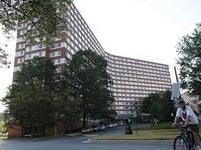 Allegations that Moscow ran a spy ring in the US are baseless and a throwback to the Cold War, a Russian foreign ministry official has said.
Allegations that Moscow ran a spy ring in the US are baseless and a throwback to the Cold War, a Russian foreign ministry official has said.
The claims had set back attempts by President Barack Obama to reset ties with Moscow, the official added.
The response comes a day after 10 people were arrested in the US.
They are accused of conspiracy to act as unlawful agents of a foreign government, a crime which carries up to five years in prison.
Nine of those arrested also face a charge of conspiracy to launder money.
An 11th suspect named as "Christopher R Metsos" was arrested on Tuesday on the Mediterranean island of Cyprus, police there said. They said he was arrested at Larnaca airport as he tried to leave for Budapest and was released on bail pending US extradition proceedings.
The 11 were allegedly part of an operation where agents posed as ordinary citizens, some living together as couples for years.
'Special finesse'
A statement by the Russian foreign ministry official on Tuesday said of the allegations: "In our opinion, such actions are groundless and pursue unseemly aims."
It added: "In any case, it is highly deplorable that all of this is happening against the background of the reset in Russia-US ties announced by the US administration itself."
Earlier, Foreign Minister Sergei Lavrov said Moscow expected Washington to provide an explanation over the arrests.
"The moment when it was done has been chosen with a special finesse," he added with apparent sarcasm, declining further comment.
Mr Lavrov's comments suggest that he thinks it is an attempt by someone or some group within the US power structure to undermine newly warming relations between Moscow and Washington, the BBC's Rupert Wingfield-Hayes in Moscow reports.
One Russian academic told the BBC he believed the case would serve as a warning to US President Barack Obama not to trust Russia and not to get too close to the Kremlin, our correspondent adds.
A senior government official told the BBC that it was unfortunate that such activity was taking place in the US, but that it should not affect the momentum established in the relationship with Russia.
Last week, Russian President Dmitry Medvedev was in Washington for talks, and was seen having lunch with President Obama.
'Deep cover'
Alleged intercepted messages in court documents suggest the 10 people arrested in the US were asked to find information on topics including nuclear weapons, US arms control positions, Iran, White House rumours, CIA leadership turnover, and political parties.
The US Department of Justice says that eight of the suspects allegedly carried out "long-term, 'deep-cover' assignments" on US soil, working in civilian jobs so as not to arouse suspicion.
They were allegedly trained by the Russian Foreign Intelligence Service (SVR) to infiltrate policy-making circles and collect information, according to papers filed in the US court for the southern district of New York.
They were told to befriend US officials and send information using various methods to Russian government handlers.
US officials say the spy ring was discovered in a "multi-year investigation" by FBI agents who posed as Russian handlers and gleaned information from two of the suspects.
Investigators say some of the agents had been using false identities since the early 1990s, using codes and engaging in advanced computer operations, including posting apparently innocent pictures on the internet which contained hidden text.
The FBI also reported observing older techniques, such as messages sent by invisible ink, money being buried next to a beer-bottle marker and "brush pasts" in parks, where agents swap identical bags as they pass each other.
"You were sent to USA for long-term service trip," says one purported message to two of the suspects that was intercepted by US intelligence.
"Your education, bank accounts, car, house etc - all these serve one goal: fulfil your main mission, ie to search and develop ties in policymaking circles in US and send intels."
Generally, spies were allegedly tasked with becoming "Americanised" to be able to do this, with some pursuing university degrees, holding jobs, and joining relevant professional associations, court documents said.
The group allegedly got close to a scientist involved in designing bunker-busting bombs and a top former intelligence official.
Five of the suspects briefly appeared in a Manhattan federal court on Monday, where a judge ordered them to remain in prison until a preliminary hearing set for 27 July.
These included a couple known as "Richard Murphy" and "Cynthia Murphy", who were arrested in Montclair, New Jersey; Vicky Pelaez and a man known as "Juan Lazaro" who were arrested in Yonkers, New York state; and Anna Chapman, who was arrested in Manhattan, New York City.
Another three - Mikhail Semenko and a couple known as "Michael Zottoli" and "Patricia Mills" - appeared in a federal court in Alexandria, Virginia, after being arrested in Arlington, Virginia.
The final two people - a couple known as "Donald Howard Heathfield" and "Tracey Lee Ann Foley" - were arrested in Boston, Massachusetts, and appeared in a federal court in the city.
All the suspects except Ms Chapman and Mr Semenko have also been charged with conspiracy to commit money laundering.



